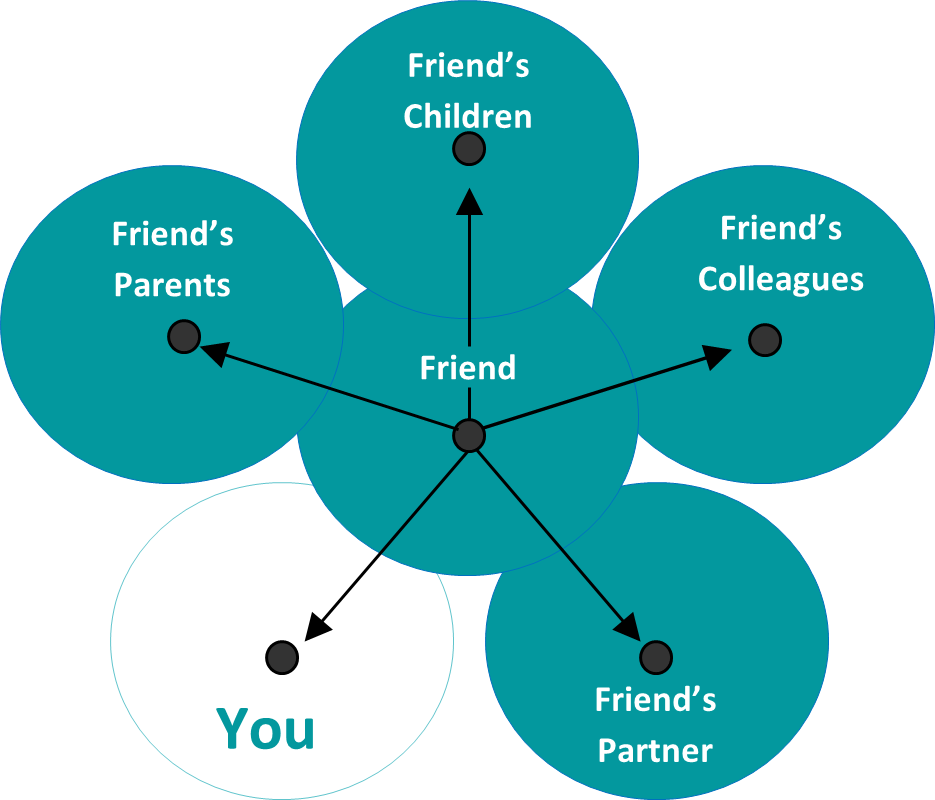Why leading from stature rather than status creates a team who want to help YOU achieve
Apr 04, 2022
We’re all in this together
Eisenhower once described leadership as: “The art of getting someone else to do something you want done because he wants to do it.”
This does not bode well when Winning Edge client MEL Research recently shared their latest Omnibus results which found that just 29% of participants love their job. Just 29%! With only just over quarter of people on average enjoying their job, what impact does that have on the productivity of the majority who are not happy? It’s a psychological fact that the brain cannot be resourceful in terms of innovation, creativity and efficiency when in a negative state. Couple this with a fifth saying they feel communication and support from their manager has got worse since the pandemic, this doesn’t make for a happy workplace.
Personal responsibility is a key area The Winning Edge focuses on. It’s about your team gaining the liberating realisation, that the only person who can propel them forward and transform their day-to-day results, is themselves. Equally, as a leader and manager, with so much change over the past two years, such as hybrid working being introduced, it’s important to understand the impact this has in terms of morale, productivity, a sense of isolation, and on the flip side, potential anxiety due to being back in the workplace with others, having worked from home for so long.
So, how can an environment be created where a team is happy, engaged, and motivated? You won’t be surprised to hear that it has to start from the top, and I’m not for once talking about thinking- I’m talking about how leaders and managers can gain a better understanding of what’s important to their team, what motivates them and therefore what will ensure they want to help their managers achieve their goals. It’s about understanding things from your team members’ perspective and working on building and maintaining effective working relationships to get the best from everyone.
It's all about you
During the Winning Edge course, we show an illustration called Circles of Incidence which helps participants to understand the part they play in other people’s lives because let’s face it, for some people, they are a legend in their own lunch hour and they think they play a far bigger role in people’s lives than they actually do.

The above diagram shows that you are the only person who goes everywhere you go- so you’re the centre of your universe. The smaller circles on the outside which satellite around you represent the people, or groups of people that you come into contact within a typical 24hrs. Thinking about someone important to you- perhaps your partner, a parent, a friend or your child(ren), on average throughout the day, you only spend 2-5% of your day thinking about them. Of course, if you are in a new relationship, or something major is happening with someone, that percentage will increase significantly but in the main, you go about your daily business and the people in your Circles of Incidence factor in your life of course, but you are the centre of your universe.

Here you are on the outside of your Friend’s Circle of Incidence. How special do you feel now on the outside?! This puts things into perspective and helps us to appreciate the part we play in other people’s lives- we can decide how we want to show up for them, how we might want to understand things from their perspective.
A very good friend messaged me the other day to say her sister has been diagnosed with a rare form of cancer. The prognosis is not good. Understandably, my friend is devastated and asked me not to call as she needs time to wrap her head around the news. Every now and again, I send a message to let her know I’m thinking of her, that I’m here for her, and will help in any way I can. The Circle of Incidence helps me to understand that I am but one of many friends that she has, and if I bombard her with messages, phone calls or cards, so might others be. What I can do is be there for my friend and continue to support her without needing anything back.

What’s the risk in not knowing this is how it works? Have you ever been to see a manager in their office, and you’ve knocked on the door, they’ve said come in, but they carry on typing? You wait patiently and then they say: “Go on, I’m listening” but keep typing? Has that happened to you? Have you done it to others? How special did you feel? It’s important to treat others as if they’re the most important person on the planet, whilst paradoxically knowing that you are the most important- and that’s because you will always do what sits most emotionally comfortable with you i.e. what aligns with your values. But it’s knowing that, whilst also understanding what’s important to other people too.
At this point on one of our courses a participant looked very thoughtful and told us of something that had taken place the evening before. He'd been sat looking at his phone when his young daughter wanted to share something she’d drawn. He admitted that he’d kept an eye on his phone whilst momentarily looking at her picture – a cursory glance. He said suddenly, his daughter had exploded saying: “You’re not listening!” At the time, he couldn’t understand why the outburst, but now he said he realised. What she was trying to communicate was: “Please climb into my universe just long enough to prove I mean more to you than your phone.” I think that’s food for thought for many of us; I know it feels like my phone is like an extension of one of my arms i.e. always available, always accessible, and I’d do well to put it in a draw and to be more present.
The great motivational speaker and author Jim Rohn once said:
“One of the greatest gifts you can give to anyone is the gift of your attention."
As a leader and manager, you will be one of those circles that satellites around your team member. They might love their job, they might not, but their job is only one facet of their life. So, how are you showing up for them? What kind of leader are you?
You can’t buy me love
A Goodwill Account is a very useful way to think about your relationships. You have a Goodwill Account with everyone who knows you- your partner, children, parents, siblings, friends, colleagues, and clients or customers you deal with. A Goodwill Account is like your bank account and what happens in your bank account? You get credits and debits. You get credits when you strengthen relationships, when you pay attention, when you remember things that are important to others, when you take an interest, when you help them out. The debits take place when you ask for favours, when you’re late for a date or a meeting, when you say you’ll do something but don’t. What happens when we take out more than we put in? We go overdrawn. How do we keep the balance in the black and keep deposits going in? When you keep doing the good stuff with no expectation of anything in return.
How does knowing about your Goodwill Account help you as a leader and a manager? Well, it’s about managing, leading or influencing by stature versus status. Stature is something others give you, status is something you give yourself. If you are overdrawn on your Goodwill Account, then the temptation is to borrow from your status. People feel like they ‘have to’ do things for you. If you are in credit in your Goodwill Account, then you manage by stature, people will do things because they feel they want to.
Everyone’s a winner
One participant on a Winning Edge course told of a colleague who had won the colleague care survey for five years running in their organisation. It took her an hour to get to her desk every morning because she would check in with her team, find out how they were, how their evening/weekend had been, remembered their partner and/or children’s names and anything significant that was happening in her colleagues’ lives at the time. By their own admission, the course participant had said to their colleague: ‘I don’t have time to do that!’ and the colleague had replied: ‘I don’t have time not to!’ That’s because if she ever needed to pull on her status to get something done, she can because her team will respond. She had built a rapport that wasn’t about doing it to get something back- it wasn’t about scoring brownie points. We should maintain Goodwill Accounts with others because we trust and care for them, not because we want something back.
If you lead by stature then you get discretionary effort from others: i.e., they’ll work later, come up with ideas on how they can help you or the situation, they’ll go the extra mile for a customer and so forth. If you have access to discretionary effort, then this increases creativity and productivity (worth 20% of your salary bill!). You don’t need to be over-the-top nice to have a Goodwill Account, but a positive Goodwill account is absolutely vital for ethically and authentically getting what you want from others. I wonder how many businesses are managed through stature as opposed to status…
So, it’s about giving others a good enough reason to want to help you. How do you know what a good enough reason is? By visiting their universe. Understand the other person, what pushes their buttons, what motivates them, what their values are and therefore, creating credit in their Goodwill Account.
As Zig Ziglar once said:
“You can get everything in life you want if you will just help enough other people get what they want.”
Learn what everyone else wants, find out what’s in it for them and they’re much more likely to want to be an active, resourceful and motivated part of the team.
Yes, it’s a two-way street but by fostering a culture in the workplace whereby you lead by stature rather than status, more often than not, people want to be part of something which feels like a positive force for good.
. . . . . . .
Do you find it challenging to understand another’s perspective? Is it your way or the highway?
Perhaps strengthening relationships is something you’d like to focus on in 2022– both personally and professionally.
The Mindset Coaching Membership can help you understand the tools and strategies needed. With Masterclass Teachings + Coaching + Accountability, we will help you to create the future you want. Find out more here.
Follow us on Facebook
Follow us on LinkedIn
Follow us on Instagram
Subscribe today!
Supercharge your mindset with our Mindset Blog...
We do not SPAM and we will never sell your information, for any reason.

